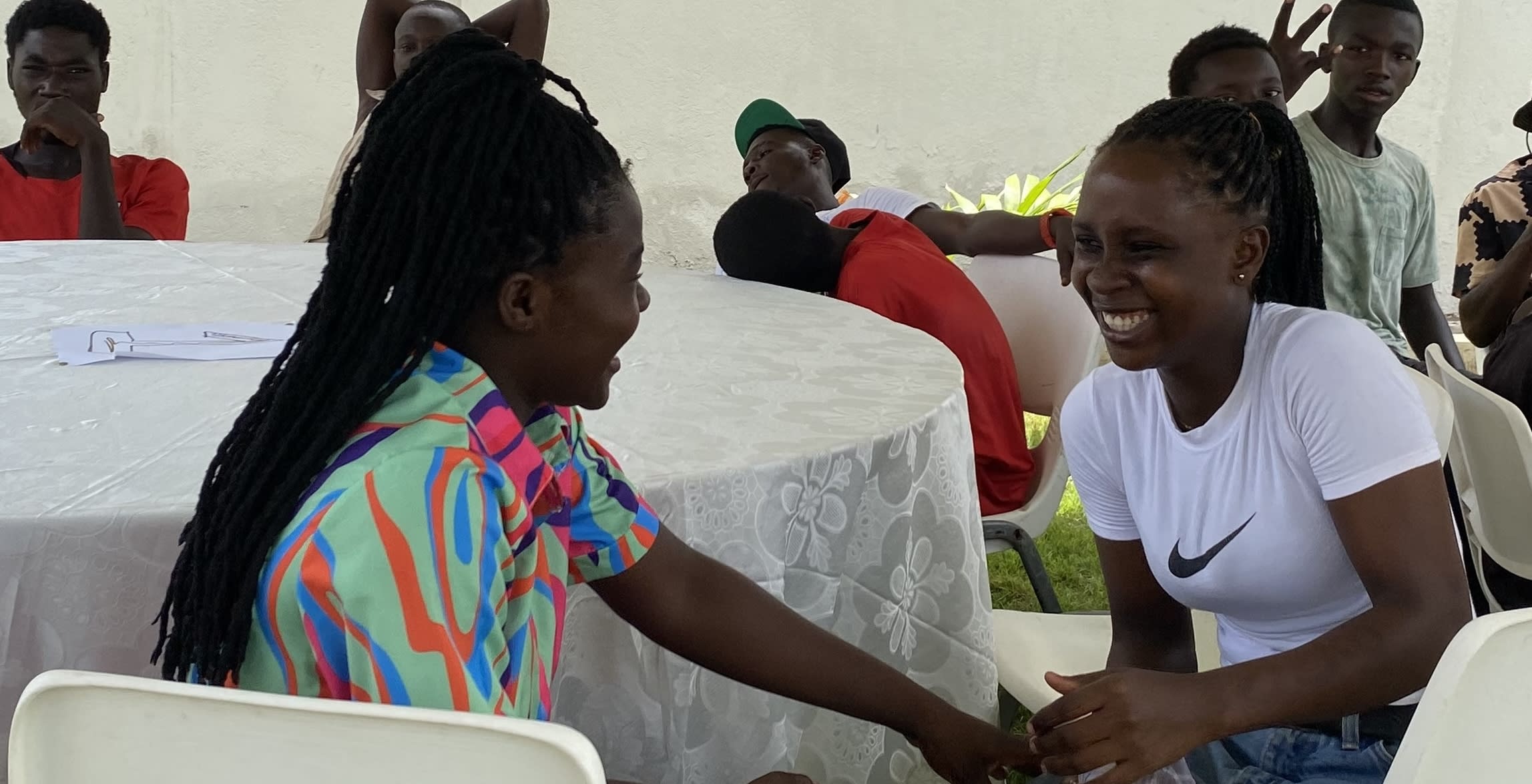
Comfort faced years of adversity and loneliness, yet she persevered, unwavering in her quest for a brighter tomorrow. With every obstacle she encountered, she found strength within herself, fueled by an unyielding resolve to defy the odds.
Comfort's childhood was marked by pain and loneliness. She never met her father, a police officer, and never felt loved by her mother, who sold tea at the market. With four siblings from different fathers, Comfort often felt like an outsider. One of her earliest memories is of being abandoned by her mother at a market, only to be returned to her grandmother by a stranger. But even that safe haven didn’t last—her mother eventually kidnapped her from her grandmother’s home.
When Comfort was in school, she faced a lot of difficulties. She struggled to understand lessons, and she found it hard to think clearly. However, she excelled at using her hands to get things done and she enjoyed practical activities. Unfortunately, the constant beatings from teachers made her feel hopeless. Her mother only added to her misery, telling her that she brought shame and pain to the family. Comfort vividly recalls her mother threatening to poison her, leaving her terrified to eat at home. She began throwing away any food she was given, fearing it could be her last meal.
Comfort was forced to work with her mother in the market, whenever she did not go to school, to help cover the household expenses. She worked hard to ensure that the days' sales was enough to feed the family but she still had to endure her mothers harsh treatments for every misstep. One day, after stealing some money to buy snacks because she was hungry, Comfort’s mother beat her severely and, having had enough, sent her away to live with her aunt.
While her aunt's children went to school and played with their friends, Comfort was stuck at home, frying fish and selling it at the market every day. As she watched her cousins enjoy their childhood, Comfort felt a deep sadness. She longed to be like them, to go to school, play, and be carefree. Instead, she was burdened with work and chores, feeling lonely and unloved. The weight of it all made Comfort question if anyone truly cared for her, and she began to think about running away from the life that made her feel invisible.
Comfort returned to her mother's house after a few months but the situation at home remained the same. Yearning for her mother's love and attention, she sought solace in Badrain, a local aluminium smelter who took advantage of Comfort and got her pregnant. This made things worse, “my mother was angry and told me she didn’t consider me as part of her children anymore, and she didn’t need me in her life, so I had to move in with my aunty while I was pregnant."
At just 15 and pregnant, Comfort was forced by her aunt to spend the entire day at the market, selling fried fish under the scorching sun. People would stare, whisper, and mock her for being pregnant at such a young age. The heat and market smell made her feel nauseous, but no matter how much she complained, her aunt didn’t care. Comfort was weak, tired, and constantly thirsty. When it all became too much, she would slip into hidden alleyways, crying from exhaustion and hunger, overwhelmed by the weight of her struggles.
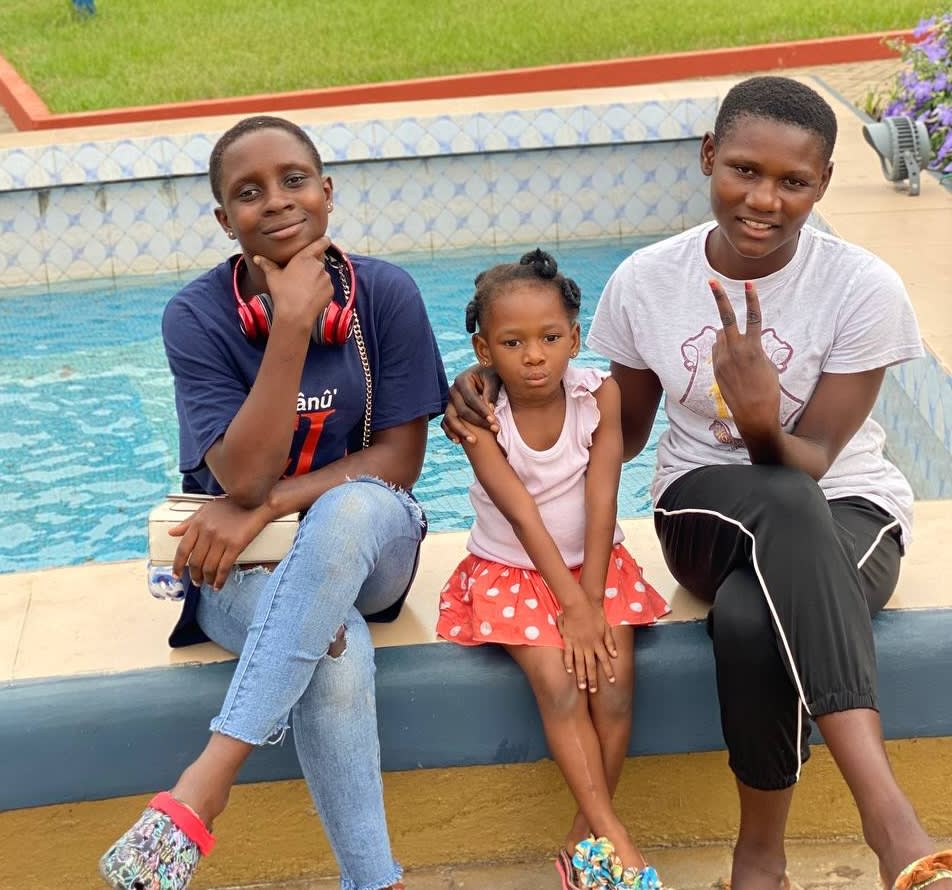
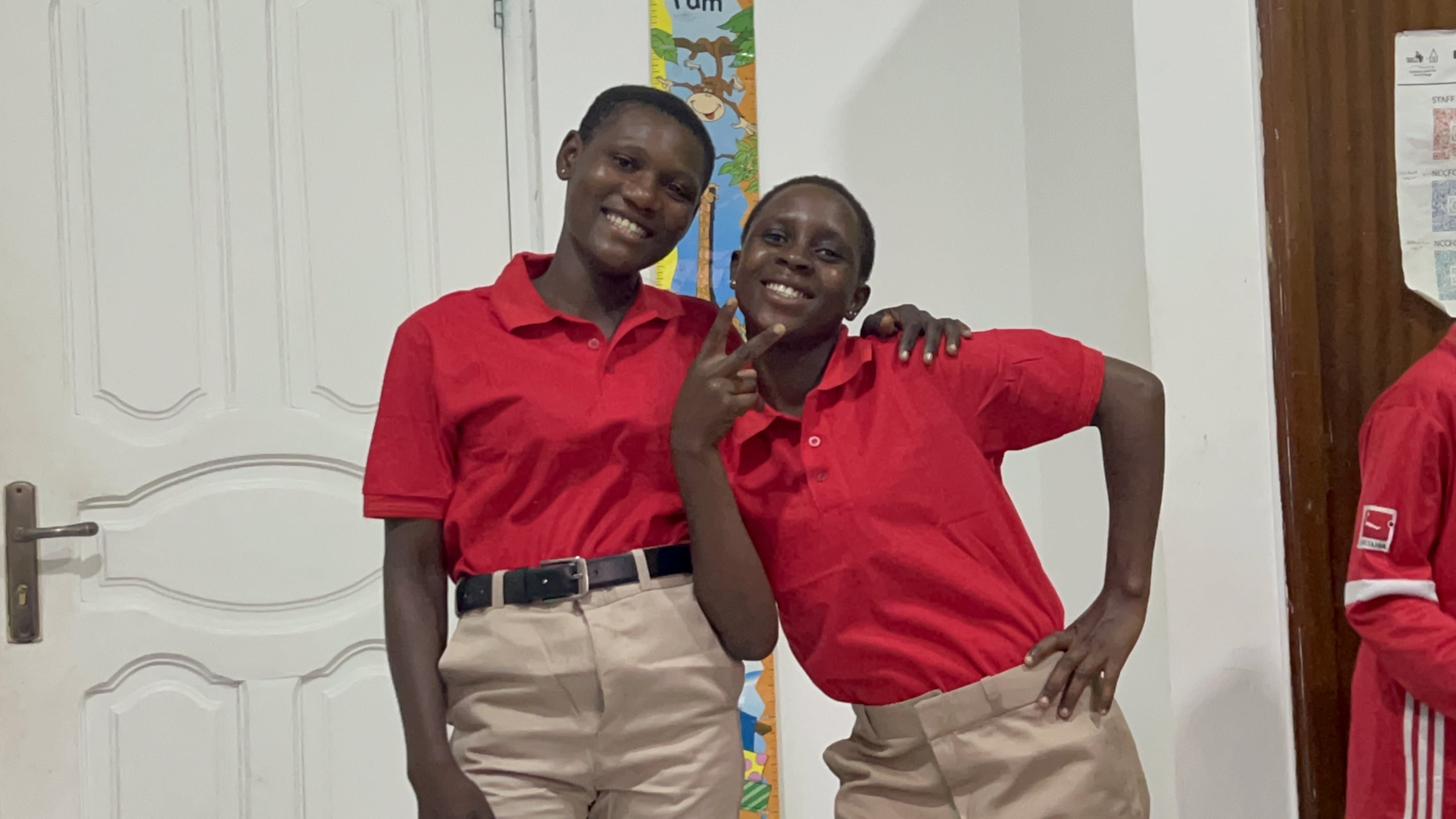
Comfort hadn’t seen her mother for months, but she finally came when Comfort was due to give birth. "My mother's presence and support during the birth finally put a smile on my face, but that was short-lived," Comfort said. Just weeks after her baby was born, her mother took the baby away and sent Comfort back to frying and selling fish at her aunt’s. The heat from the fire and oil was unbearable, but she had no choice.
For months, Comfort endured mistreatment at her aunt’s, with no word from her mother or her child. During this time, she met Abigail, a lively and outgoing girl who often traveled to different cities in Accra, enjoying the freedom of living on her own. Abigail convinced Comfort to leave and go to Kantamanto, where they could be free and do whatever they wanted. They had no money, but that didn’t stop them. They walked 25 kilometers from Kasoa to Achimota, and when they got there, a stranger paid for their transportation to Kantamanto.
-
My mother was angry and told me she didn’t consider me as part of her children anymore, and she didn’t need me in her life.
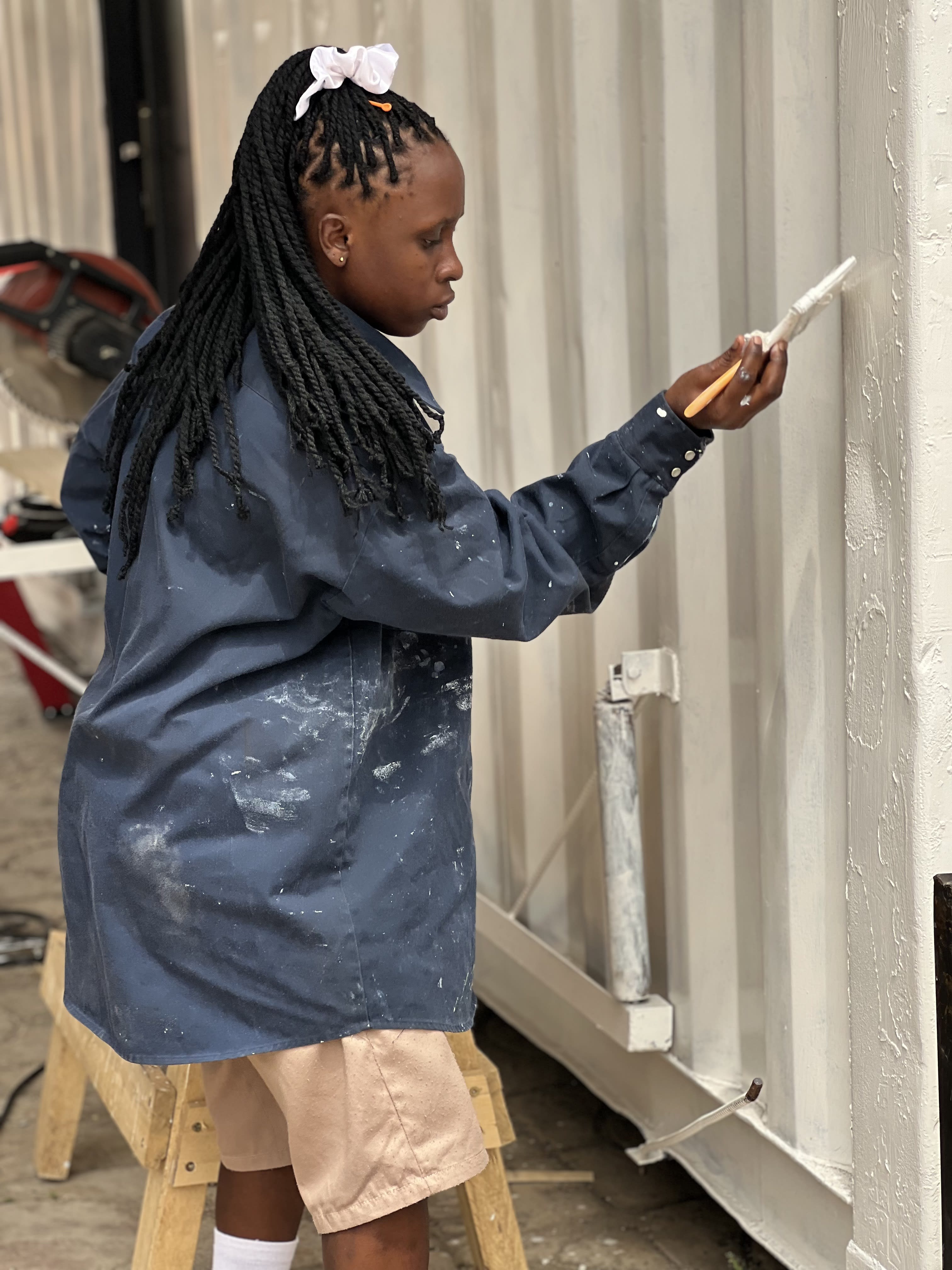
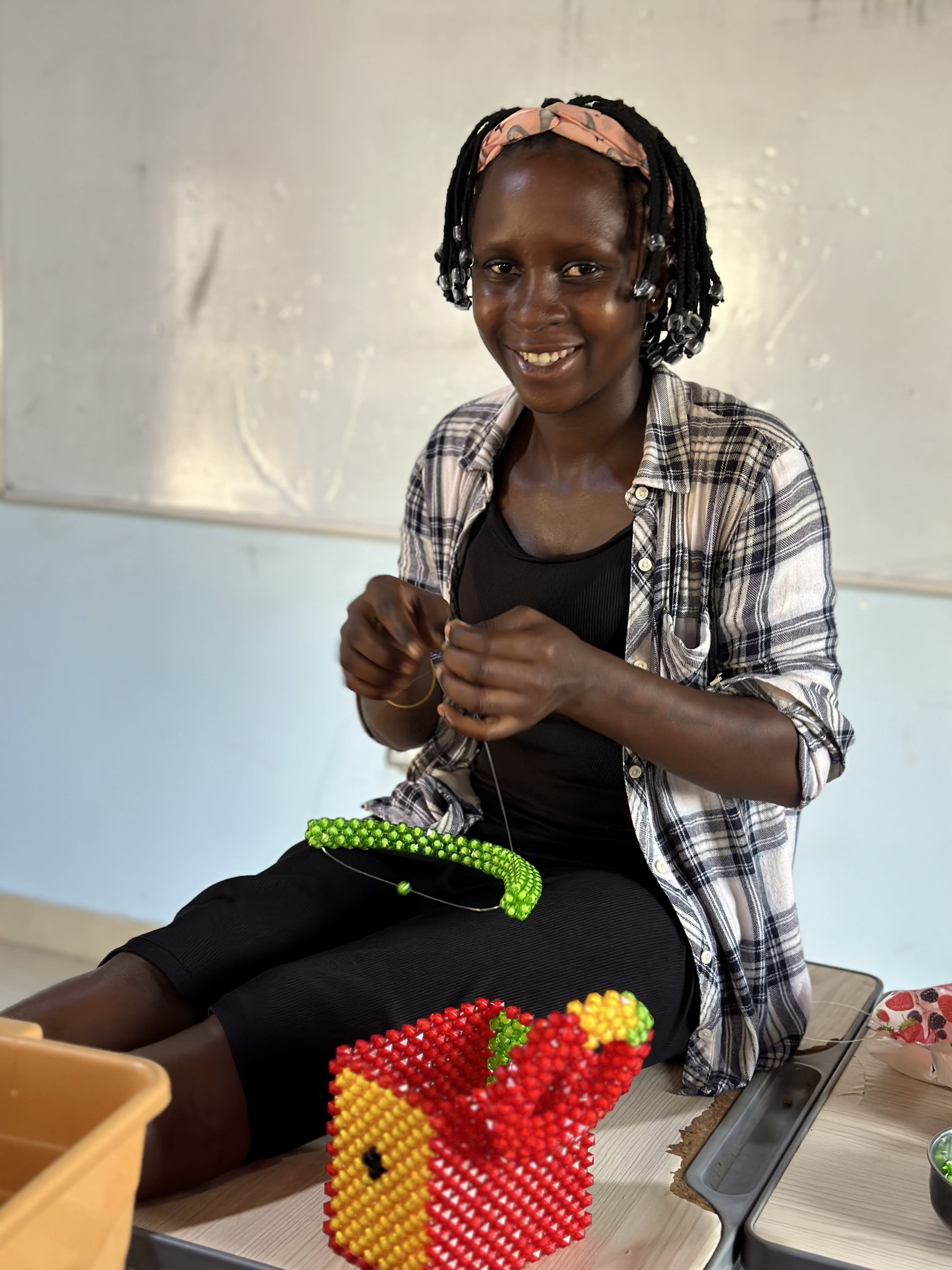
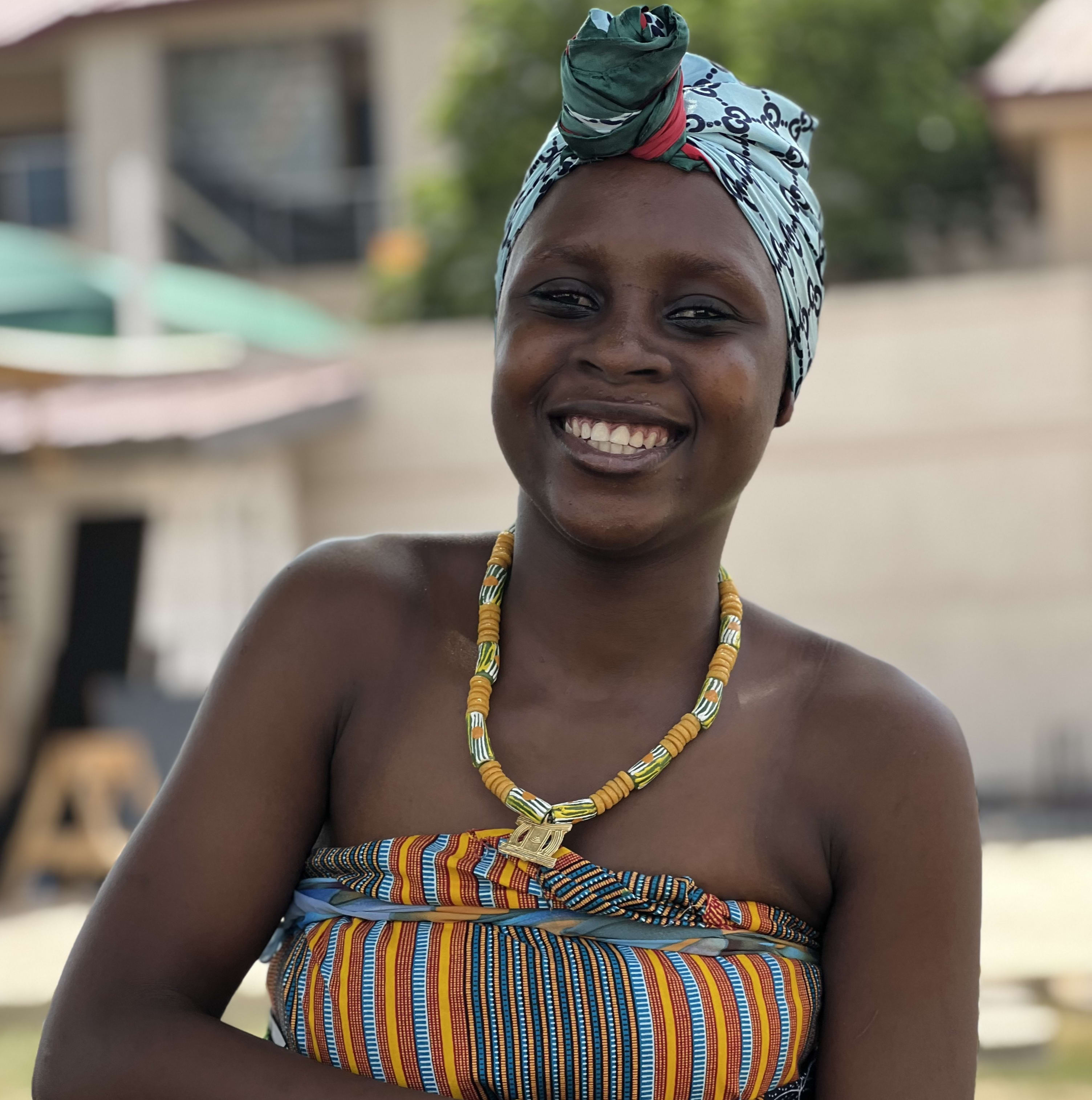
At Kantamanto, Comfort and Abigail met Asana, a young street girl who understood how hard it was for newcomers. She offered guidance, knowing the dangers girls faced there—rape, kidnapping, and abuse. Asana didn’t want Comfort and Abigail to be taken advantage of. For four months, she looked after Comfort, helping her earn money by selling food at the market. But eventually, Asana couldn’t keep sharing her small earnings—it wasn’t enough for both of them. Comfort had to make it on her own and found work selling sachet water in traffic. "Surviving on the streets as a young girl is hard," Comfort shared. "Sometimes my brain would hurt so much after walking and selling in the hot sun. I’d find a quiet place to sit and be by myself”
Despite all her hard work, there were many days when Comfort's earnings could barely buy her a single meal or rent a mattress to sleep on for the night. The constant strain of hustling began to wear her down. She often fell sick, made worse by her irregular eating. Over time, she developed ulcers, and the pain only grew worse as she struggled to keep up with the demands of her daily routine.
After four long years, Comfort's longing for her family, especially her child, never faded. One day, she crossed paths with a kind female soldier who offered to help her return home to her mother. But when Comfort arrived, her mother coldly turned her away, saying, "I'm raising your child now, so you're not needed." The words cut deep, leaving Comfort devastated. The soldier kindly offered her a place to stay, but Comfort felt uneasy. The pain of her mother’s rejection was too fresh, and something about staying with the soldier didn’t sit right with her. A few weeks later, overwhelmed and lost, Comfort ran back to the streets, where the familiar chaos strangely brought her some comfort.
Eventually, Comfort found refuge with an organization that provided vocational training for girls. It seemed like a new beginning, but with no place to stay, she had to return to the streets every day after her training, struggling to find her footing once again. During this time, Comfort discovered Future of Africa at Kantamanto on a Sunday evening. She had fun participating in FOA’s outreach games and learning about personal hygiene. She was surprised people actually cared enough to sit next with street youth, have conversations and share meals with them. She also met Sir Nicholas and learned about FOA’s Norviwo Community and the support available for street children. Embracing Nicholas's invitation, she found comfort at FOA's community center. This opportunity allowed her dream of life beyond the streets, she felt seen and listened to. For once Comfort felt people cared about her and didn’t judge her for getting pregnant and having a baby at 15. “I wanted to give this opportunity everything i have, make better choices to I don’t miss out on being someone in future.”
Comfort was determined to prove to her mother that she wasn’t the useless child her mother had always made her feel she was. Though motivated to rebuild her life, Comfort struggled with the habits she had developed while living on the streets. Her first year at FOA was especially hard, as she faced many challenges adjusting to their structure, routines, and rules. Despite her determination, she often found herself in trouble, leading to several conduct-related infractions. FOA provided her with extensive psychosocial support to help her through these difficulties.
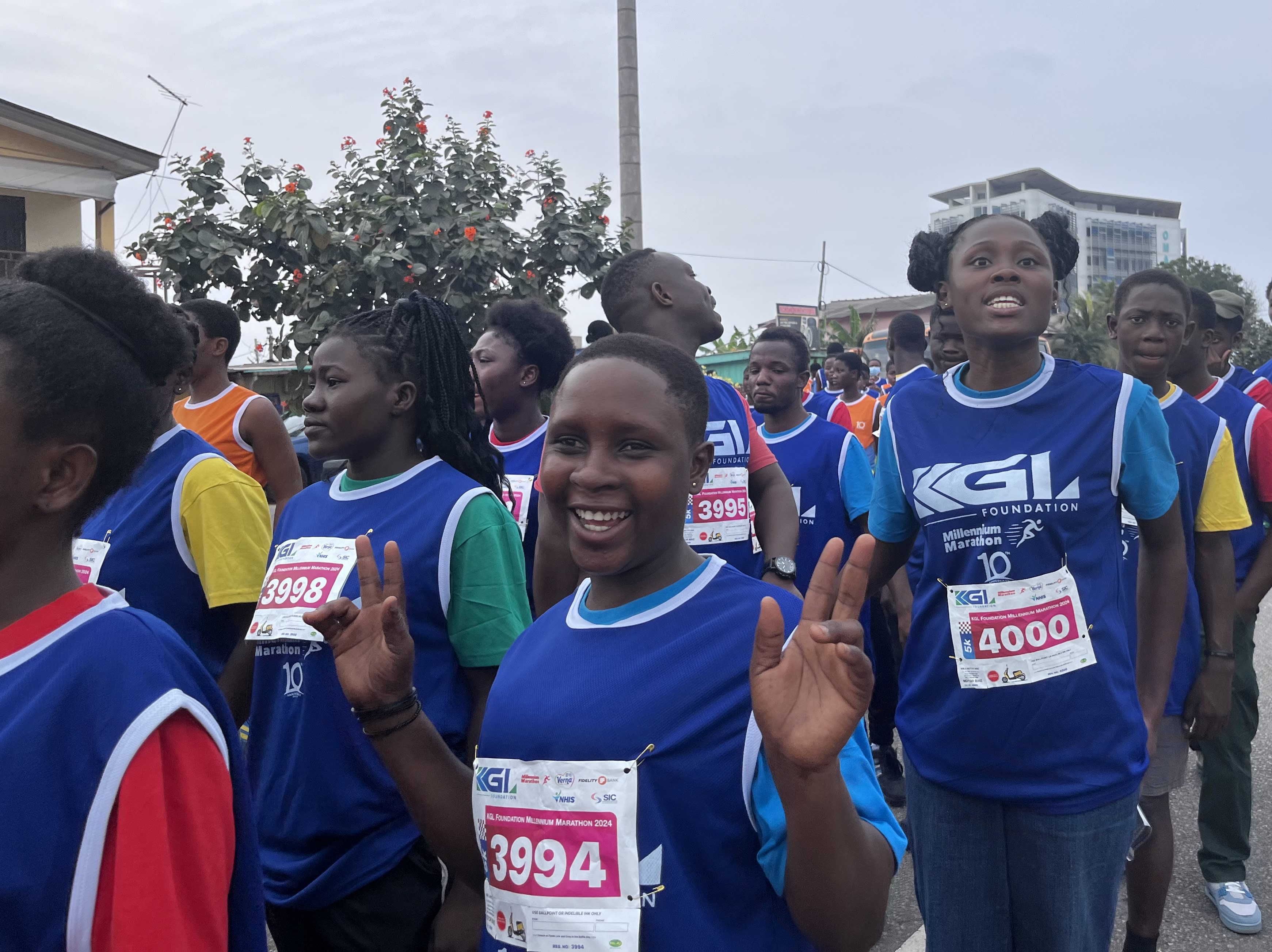
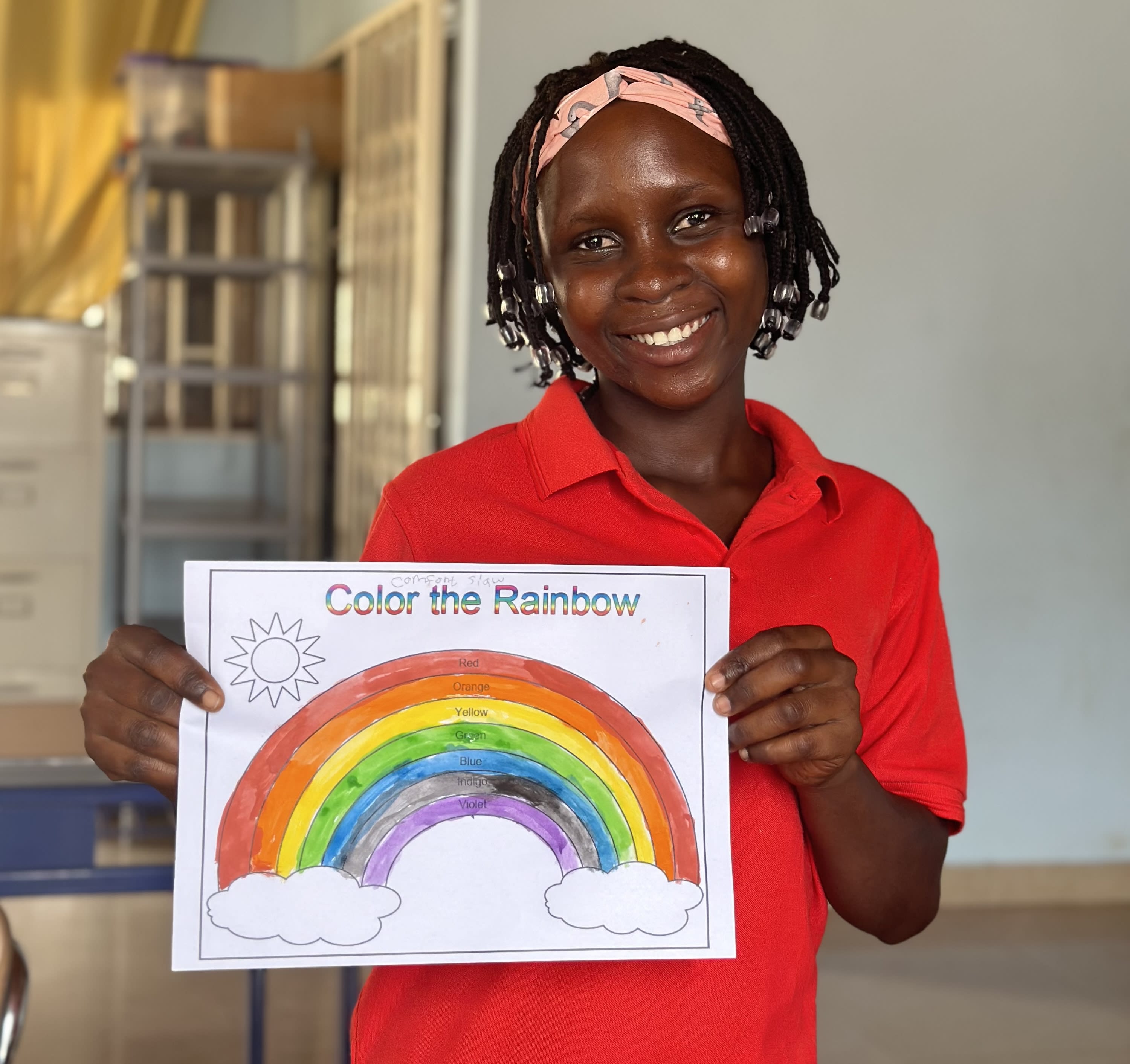
Comfort was eventually reunited with her family, as FOA recognizes the vital role family support plays in the well-being of rescued youth. Her mother promised to work with FOA to support Comfort, but after a few days, Comfort ran away again. She disappeared for six months without contacting FOA. When she finally reached out, she explained that getting along with her mother and aunt had been too difficult, and she didn’t know how to handle the situation.
Comfort reached out to FOA again after several months, eager to rejoin the Norviwo program. She realized that FOA’s support had given her hope for a brighter future, and she wanted a second chance. Determined to help others like her, Comfort took it upon herself to bring other girls living on the streets into FOA’s programs, giving them the opportunity for a better life. Every week, she brought at least seven girls to our outreach and Wellness Wednesday programs, where they could join in our female-focused activities.
In September 2023, Comfort was accepted back into the Norviwo Transformation Pathways. Since then, she’s fully dedicated herself to learning job skills in beadwork and food processing. With the encouragement of FOA staff and volunteers, Comfort is embracing a new outlook on life, following the organization’s code of conduct with determination. Yet, she still struggles with thoughts of her son and her desire to create a better life for him. Comfort dreams of owning her own shop one day, using her skills to train others like her, empowering them to build their futures. She also envisions expanding FOA’s programs, dreaming of building spaces for events and celebrations, where more lives can be transformed like hers.
Update on Comfort's Journey
In January 2025, Comfort's journey with FOA ended when she expressed her intention to leave the program after successfully completing her training in beadwork. Initially, she attempted to run away, but the team was able to intervene, engaging in deep conversations to understand her perspective and motivations. After significant discussions, Comfort was given the freedom to make her own choice. She shared that a new opportunity outside the Norviwo Transformation Program had opened up for her, and she wanted to pursue it. While her departure was unexpected, we remain hopeful that the skills and support she received at FOA will help her navigate her path forward.